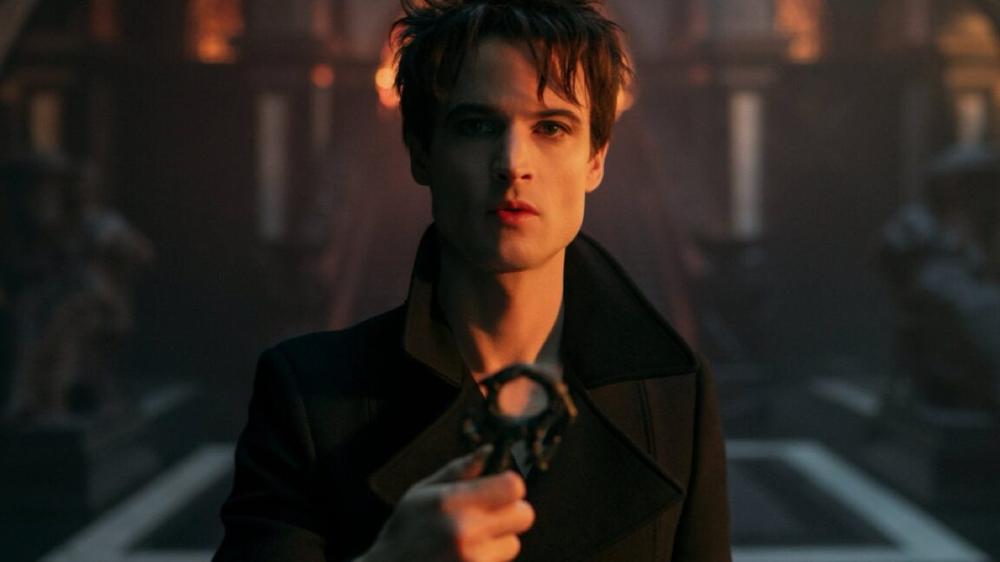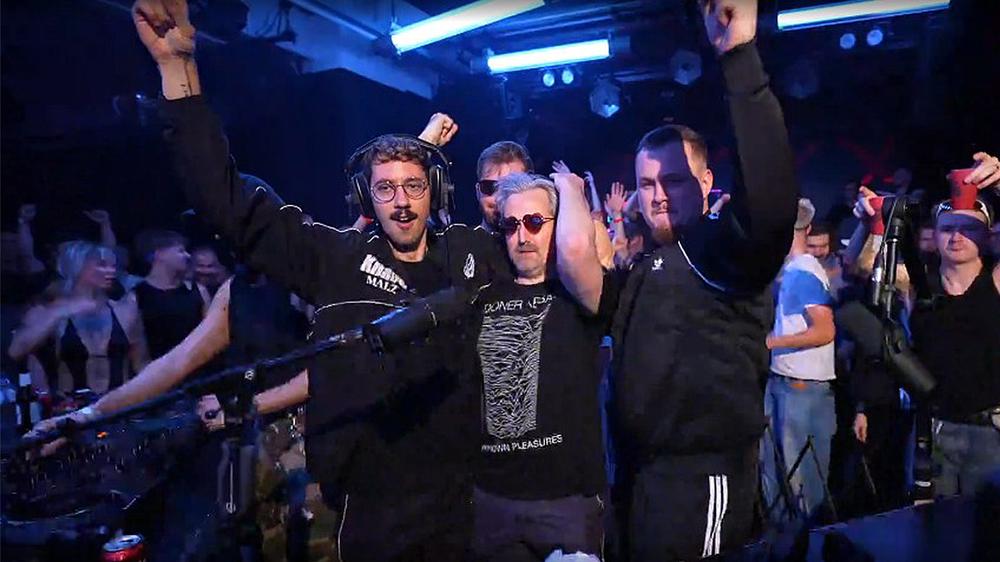I unequivocally loved the first season of The Sandman, the Netflix adaptation of Neil Gaiman's influential graphic novel series (of which I am longtime fan). I thought it captured the surreal, dream-like feel and tone of its source material, striking a perfect balance between the anthology approach of the graphic novels and grounding the narrative by focusing on the arc of its central figure: Morpheus, lord of the Dreaming. It's been a long wait for the second and final season, but S2 retains all those elements to bring Dream's story to its inevitably tragic, yet satisfying, end.
(Spoilers below; some major S2 reveals after the second gallery. We'll give you a heads-up when we get there.)
When Netflix announced in January that The Sandman would end with S2, speculation abounded that this was due to sexual misconduct allegations against Gaiman (who has denied them). However, showrunner Allan Heinberg wrote on X that the plan had long been for there to be only two seasons because the show's creators felt they had only enough material to fill two seasons, and frankly, they were right. The first season covered the storylines of Preludes and Nocturnes and A Doll's House, with bonus episodes adapting "Dream of a Thousand Cats" and "Calliope" from Dream Country.
The S2 source material is drawn primarily from Seasons of Mists, Brief Lives, The Kindly Ones, and The Wake, weaving in relevant material from Fables and Reflections—most notably "The Song of Orpheus" and elements of "Thermidor"—and the award-winning "A Midsummer Night's Dream" from Dream Country. This season's bonus episode adapts the 1993 standalone spinoff Death: The High Cost of Living. All that's really missing is A Game of You—which focuses on Barbie (a minor character introduced in A Doll's House) trying to save her magical dream realm from the evil forces of the Cuckoo—and a handful of standalone short stories. None of that material has any bearing on the Dream King's larger character arc, so we lose little by the omissions.
Making amends
After escaping his captors, regaining his talismans, tracking down the rogue Corinthian (Boyd Holbrook), and dealing with a Vortex, S2 finds Morpheus (Tom Sturridge) rebuilding the Dreaming, which had fallen into disrepair during his long absence. He is interrupted by his sibling Destiny's (Adrian Lester) unexpected summons to a family meeting, including Death (Kirby Howell-Baptiste), Desire (Mason Alexander Park), Despair (Donna Preston), and Delirium (Esmé Creed-Miles).
The sole purpose of this dysfunctional family gathering is to set Dream on a quest to rescue his former lover, Nada (Umulisa Gahiga), queen of the First People, whom he had banished to Hell for ending their relationship. That means a confrontation with Lucifer (Gwendolyn Christie), who still bears a grudge against Morpheus for besting her in front of her subjects in S1. It does not go down as Morpheus expected: instead of fighting, Lucifer quits and gives Morpheus the key to a now-empty Hell, forcing him to choose a new guardian from a host of interested parties (e.g., Odin, Order, Chaos, and the demon Azazel).
But it's Delirium's desire to find their missing brother Destruction (Barry Sloane), who abdicated his realm centuries earlier, that sets Morpheus down the path that will lead to his ultimate fate: spilling family blood and incurring the wrath of the Kindly Ones.
(WARNING: A few major spoilers below the gallery.)
Eve of Destruction
As always, the casting is extraordinary and the performances are note-perfect across the board. And Netflix did not skimp on the visuals, which bring the graphic novel imagery to vivid life. While The Sandman has always faced some criticism for its decidedly leisurely pacing, I still appreciate how it lets the viewer relax and sink into this richly layered fictional world.
The only weak episode is "Time and Night"—specifically the scenes in which Morpheus visits his father, Time (Rufus Sewell), and mother, Night (Tanya Moodie), seeking their help to escape the fury of the Kindly Ones—to no avail. Part of this is canon: Time and Night are indeed the parents of the Endless, and in the Hugo-winning Overture, Morpheus asks his father for help (on a different matter) and is rebuffed. It's been reimagined as an existential moment of truth as Dream comes to terms with his parental issues. Those scenes fit thematically, but even Sewell can't rescue the clumsy dialogue, much of which sounds like a transcript from a therapy session.
There are so many memorable moments that stick with you long after the credits roll: Lucifer asking Dream to cut off her wings; the goddess Ishtar (Amber Rose Revah), reduced to dancing at a strip club, removing all her artifice and dancing one last time as her divine self; Dream explaining to William Shakespeare why he tasked him with writing The Tempest; and a new, improved Corinthian falling for Johanna Constantine (Jenna Coleman).
Then there's the haunting song Orpheus sings in the Underworld; Dream killing his long-suffering son out of mercy, knowing full well what the price would be; Lyta Hall (Razane Jammal) and the Furies striking down Fiddler's Green (Stephen Fry), Mervyn Pumpkinhead (Mark Hamill), and poor long-suffering Abel (Asim Chaudhry); and Dream taking his sister Death's hand one final time to bring his story to an end.
Destiny awaits
As the show reminds us, all good stories must come to an end, if only to make way for new stories. We get a glimpse of just that with the new incarnation of Dream: Lyta's son, Daniel Hall (Jacob Anderson), the only human conceived in the Dreaming. A rather disoriented Daniel must adjust to suddenly being one of the Endless and find his own way of ruling over the realm. And while his new siblings take the time to grieve the loss of Morpheus, they also embrace the change and welcome Daniel to the fold. A new chapter begins.
The bonus episode, in which Death gets one day (every hundred years) to be human, might have been just an afterthought, but for the fact that the day ends with her own death—so that she better understands how precious life is, and what is lost when a human passes. "It just goes so fast," she says as her time draws near. "You want to hang onto every second. And you'd give anything for just one more." Plus, she helps a suicidal young man (Colin Morgan) find new meaning in life. The episode serves as a lovely coda to this unique series, which is pretty much everything I could have wanted in an adaptation.
All episodes of The Sandman are now streaming on Netflix.

 Peace talks will include 'some swapping of territories,' Trump says ahead of proposed meeting with Putin
Peace talks will include 'some swapping of territories,' Trump says ahead of proposed meeting with Putin